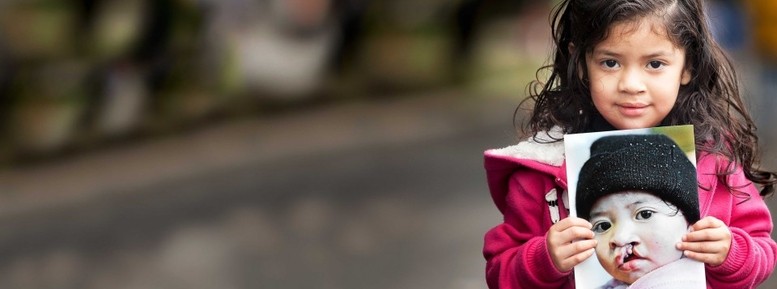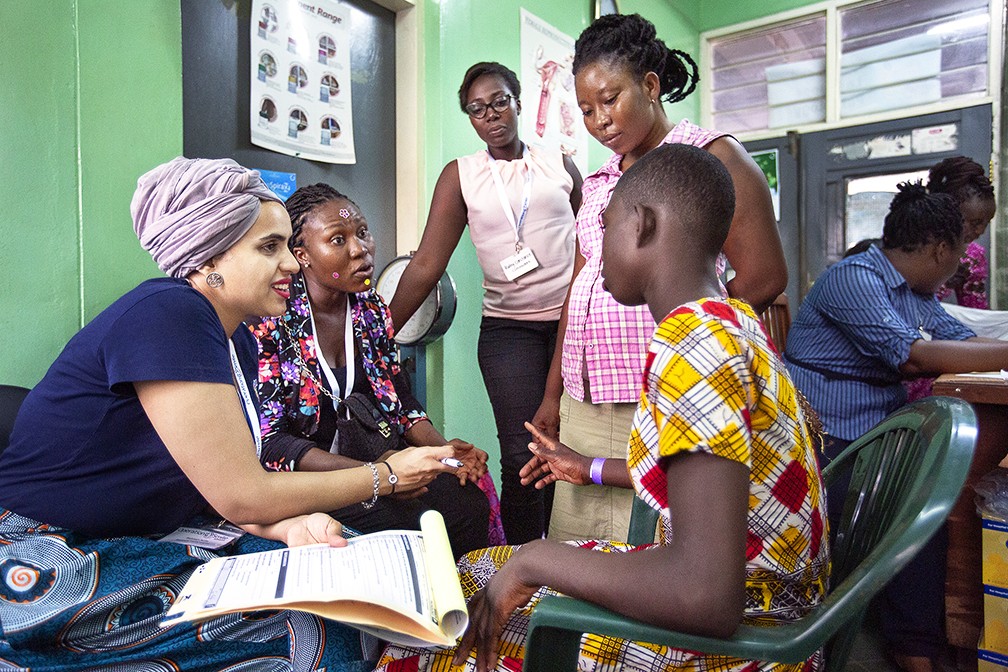
The first time Salmah Kola was exposed to Operation Smile’s work, she didn’t foresee that one day she’d become a key member of the organization.
She first learned about the organization when the South African TV show “Free Spirit” showcased a medical mission in Madagascar. Looking back, Salmah remembered seeing the crowds of patients and families and being in awe of what was being accomplished across her beloved continent.
At the time, she was still a speech therapy student, but her now-late brother told Salmah that he could envision her doing similar work once she finished school.
And sure enough, after Salmah graduated, she was reintroduced to Operation Smile when a fellow colleague – an Operation Smile volunteer – returned from a medical mission in Rwanda. She shared stories with Salmah and talked about how it felt to be involved in something that was changing global health care.
“I signed up immediately! It was only after some time that I went on my first mission to the Democratic Republic of Congo, and I have not looked back since,” she said.
That decision changed the course of her life.
Traveling to Ghana, Malawi, the Democratic Republic of Congo, Madagascar and Paraguay as a speech language therapist, Salmah has spent eight years helping transform the lives and futures of children.
Providing speech therapy care to people in Africa and South America is only the beginning for Salmah. With no plans of slowing down, she aims to attend missions all over the world.
“I have been on nine missions so far, and I strongly hope that my mission career continues indefinitely,” Salmah said.
We recently sat down with Salmah to learn more about her work as a speech language therapist and hear what has driven her to dedicate her life to Operation Smile for nearly a decade.
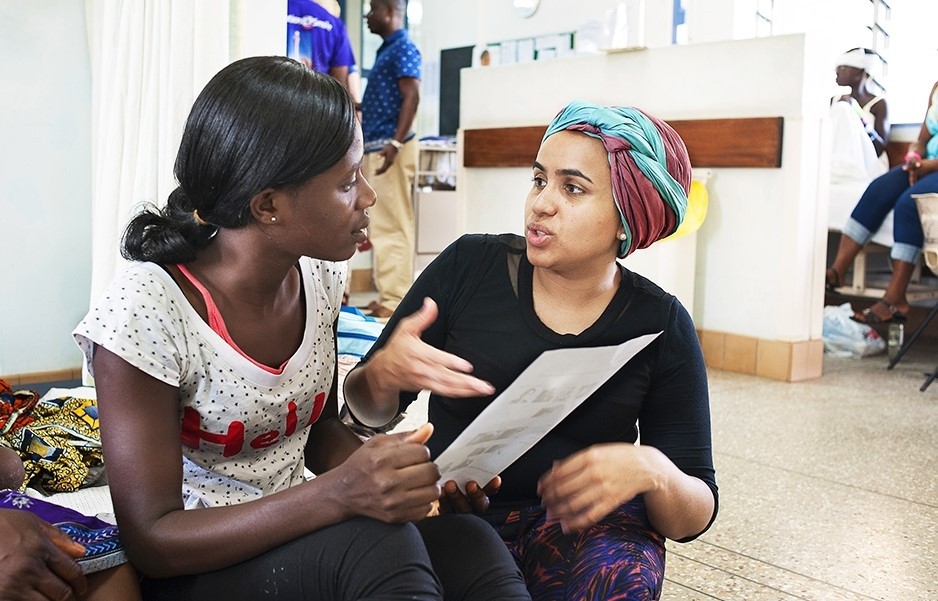
Q: What is your motivation to give so much of your time and effort to Operation Smile?
A: “Collaboration, collaboration and more collaboration! I have never worked in a context where a group of strangers from all over the world can come together and make such a great impact in a short amount of time. The team element that is fostered in every mission is what makes missions so appealing to me. All team members are valued, and there is always room for sharing. Beyond that, there are always local volunteers who are involved, which makes the impact of the work we do more lasting. These factors, amongst others, result in comprehensive care, which is why I’m so committed to Operation Smile. Just the mere fact that speech therapists are included in missions means that each patient’s long-term success is a priority.”
Q: Can you describe the value that speech language therapists bring to Operation Smile’s patients?
A: “Speech therapists play a vital role in many areas within the mission context, namely feeding, speech development and correction, and language development across all ages. To elaborate on one area, feeding issues are common, particularly in a child’s first few months of life. This can be a very frightening and debilitating time for parents, and without the right information and support, it can have detrimental effects. Many of the patients we see on missions in Africa come from impoverished backgrounds, and special cleft bottles are not feasible due to the lack of running water, limited safe heating systems and poor literacy to aid them in using formula. In cases such as these, we offer feeding solutions that are better suited to the child’s needs and the context. Having in-country volunteers also means that these families receive follow-up care and very often return to missions stronger, healthier and ready for surgery.
“Furthermore, speech is another main area of concern. People with a cleft palate often present speech problems, making their speech difficult to understand and resulting in bullying or being shunned by the community. Although a cleft palate surgery fixes the palate, these patients often require follow-up speech therapy. This can be a long-term need, and all patients are encouraged to return to follow-up missions to assist with their speech. During missions, the family and caregivers are counselled on activities and exercises that can be used to correct speech. With the assistance of translators, letters to the school can also be written to advise and educate teachers on the speech problem and how it can be managed.
“Interestingly, in some of the countries where I have worked, speech therapy is an unheard of profession, so much so that translators use long-winded explanations to describe what we do since the vocabulary for the profession does not exist in the native language. This means that we play a vital role in advocating for the profession and have the opportunity to see patients who, had Operation Smile not been active in their country, may never have had the opportunity to receive our services. For the field of speech therapy, this is simply phenomenal!"
Q: How do you feel that your service to Operation Smile has made you a better professional?
A: "I have and will always maintain that although going on missions means that we give and share of ourselves and our expertise, we are also very much on the receiving end. I have become a better speech therapist by having had the opportunity to work with other speech therapists with more years of experience, more mission experience and different insights than what I have. Reflecting on all my mission experiences with my fellow speech therapists from Canada, the U.K., the U.S., Sweden and South Africa, I’m fortunate to say that I have truly fine-tuned my skills, shared my expertise and developed lifelong friendships. Beyond expanding my speech therapy skills, my organizational skills have improved. When screening 100-plus patients in a day and sifting through them to divide them into appropriate groups – for example, those needing feeding intervention and those needing speech therapy – the admin piles up fast. Thankfully, this is a skill that missions have helped me hone in on.
“The impact missions have had on me as a professional are great and valued, but these are not as important as the impact it has had on me as a human being. I have been humbled to be lucky enough to be a small part of this gigantic puzzle. I’m honored to work with people from all over the world who entrust me with something as valuable as their loved one’s feeding and communication.”
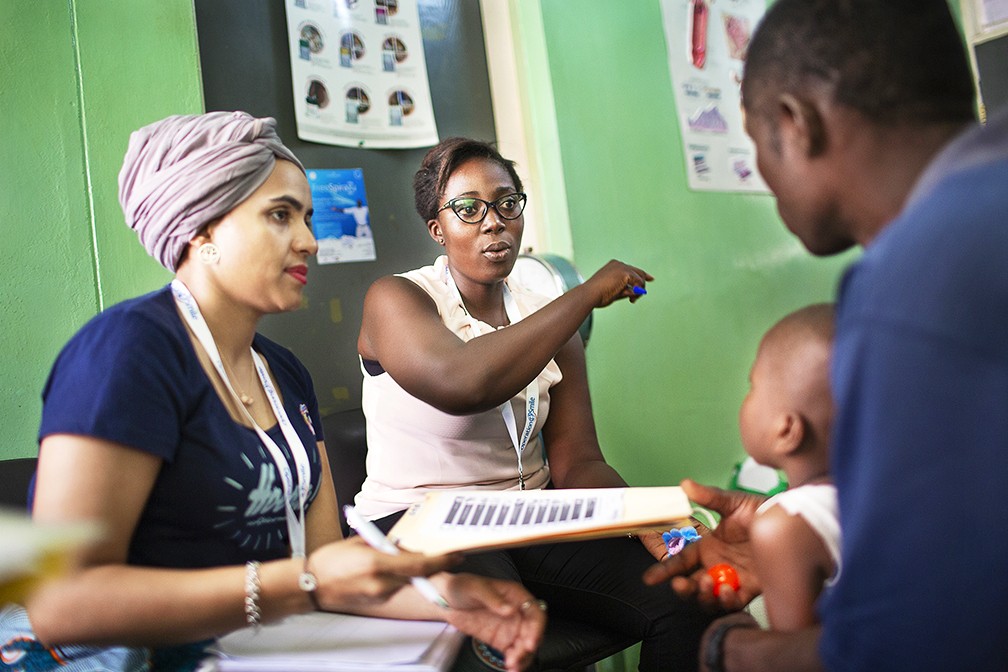
Q: Which patient or family story stands out as the most memorable in your time with Operation Smile? What was so powerful about that story?
A: “Since I have an added qualification in lactation consultancy and a keen interest in feeding intervention, my favorite patient stories are often the ones surrounding the young, malnourished babies. These families often need extensive counseling and support in order for them to support their baby’s growth. Something worth mentioning is that the mothers are often proactive in supporting each other through their difficulties. So often, mothers who arrive at the mission site with healthy and thriving babies are ready and willing to assist those who are struggling. You may see them sitting in on a feeding talk, offering a shoulder to cry on or assisting with physical care of a baby to allow a stressed mother time to relax and process. This is truly one of those moments that restore my faith in humanity. I also always tell the mothers that what we know is not as powerful as what we share.”
Q: Have you been involved in training and education for Operation Smile? What is the value of providing those educational opportunities for medical professionals?
A: “Collaboration is a recurring theme here, and a by-product of collaboration for me is capacity-building and upskilling. Every single mission that I have been on has included a training component. The training is as important as the surgeries that are performed. By equipping local volunteers with knowledge and skills, we ensure that the legacy of comprehensive care continues long after we have left.
“Training means that we value the work we do beyond our own needs and wants, meaning that sustainability is of greater importance. I would love to go on missions to the same site every year, but it’s more important for me to be able to share a skill and make sure that, in my absence, patients still receive the treatment they need. The reason initiatives like the speech and dental conference are so important is because they supply a platform for us to brainstorm ideas to make sustainability of speech therapy a reality. This is where we, as speech therapists, come together and really plan how we can make follow-up speech therapy a reality and, in so doing, effect greater change.”
Q: In November, you were a part of a global team of speech language pathologist leaders who gathered at Operation Smile Global Headquarters. Can you describe that experience and the importance of bringing that group together?
A: “November’s meeting was nothing short of insightful, educational and exhilarating. The speech and dental conference afforded us with the opportunity to meet and discuss pressing issues, which are sometimes difficult to address through email or telephone. We were able to share our experiences and expertise and make future plans to further our role and our impact on missions. Speech therapy needs after surgery can be extensive and long term, and ideas such as speech camps were discussed and explored. This is just one way that we are looking at ensuring that the patients we treat get the most holistic care. The exciting thing about volunteering with Operation Smile is that the services we offer are constantly being monitored and improved upon. Working with the population affected by cleft is about more than just the aesthetic change. It’s about the changes we can make to our patients’ quality of life in the long term.”
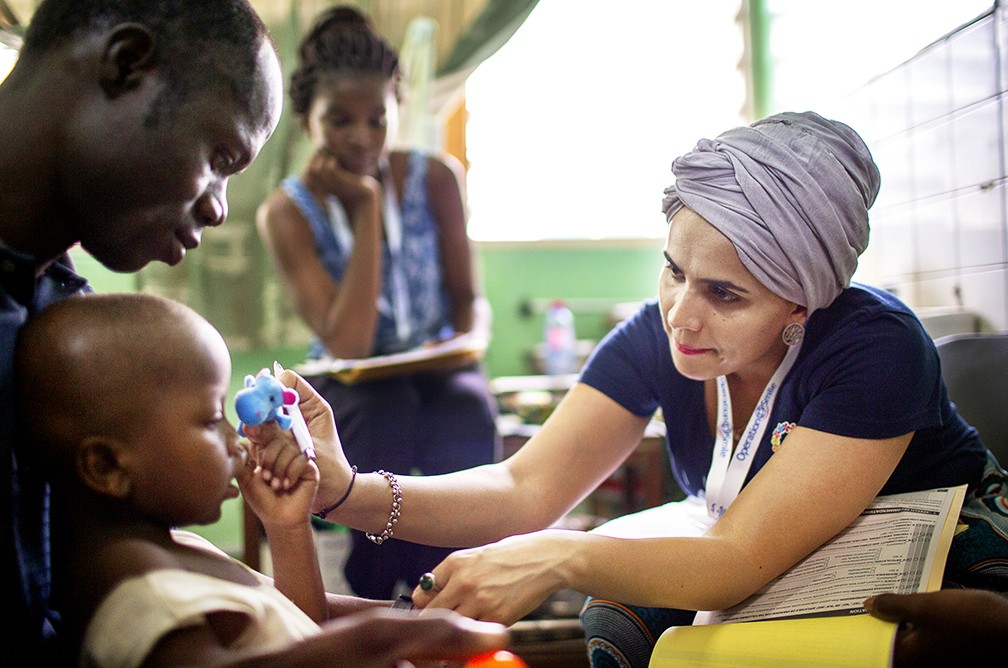
Latest Stories

Mateo's Journey

Meet Isaac

